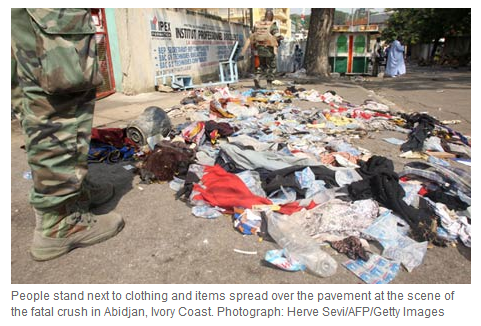In Côte d’Ivoire: 2 Years in, Uneven Progress, Human Rights Watch explain the stakes in the arrest of Amadé Ouérémi on May 18th, and what could be the implications for the “victor’s justice” in Cote d’Ivoire.
“People suspected of serious international crimes shouldn’t get a free pass just because they are linked to the government in power,” Wells said. “What happens next with Amadé Ouérémi will be telling. A credible investigation and, evidence permitting, prosecution would help heal the deep communal divisions in western Côte d’Ivoire and show that justice may finally be available to victims on both sides.”
[…]
members of the military have often engaged in serious human rights abuses, including widespread illegal detentions, inhuman treatment, torture, and, in at least few cases, extrajudicial killings. Some of the commanders implicated in these abuses were previously implicated by Human Rights Watch in a command role for serious crimes committed during the post-election crisis. The Ivorian government’s inadequate efforts to address ongoing rights abuses makes it more likely that some soldiers will continue resorting to such abuses during moments of tension, Human Rights Watch said.
The impunity for the security forces has also manifested itself in their involvement in criminal activity that often targets civilians. The UN Group of Experts found in its April report that, in consolidating their power in response to the security threats, military commanders had created a “military-economic network” throughout the country marked by parallel taxation, extortion, and smuggling worth millions of dollars. Since 2002, many former rebel commanders who now occupy key military positions have overseen similarly lucrative taxation and smuggling in northern Côte d’Ivoire, as documented b yHuman Rights Watch and the UN.

